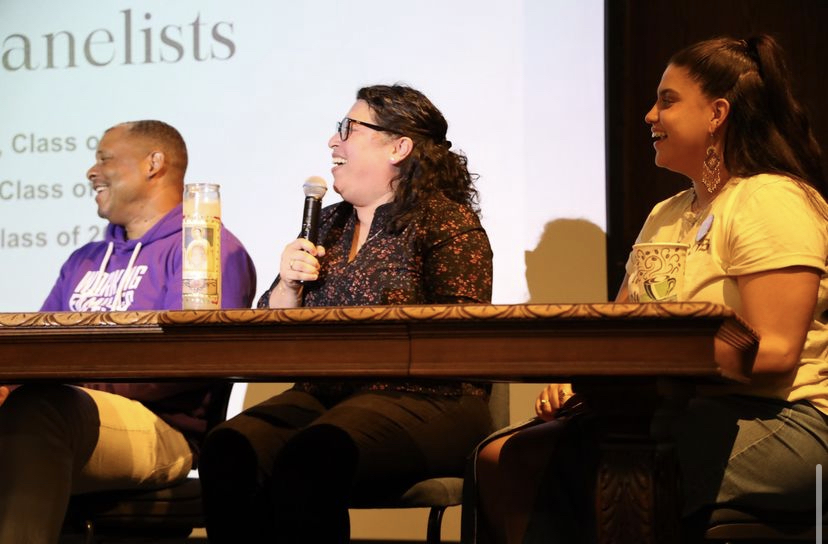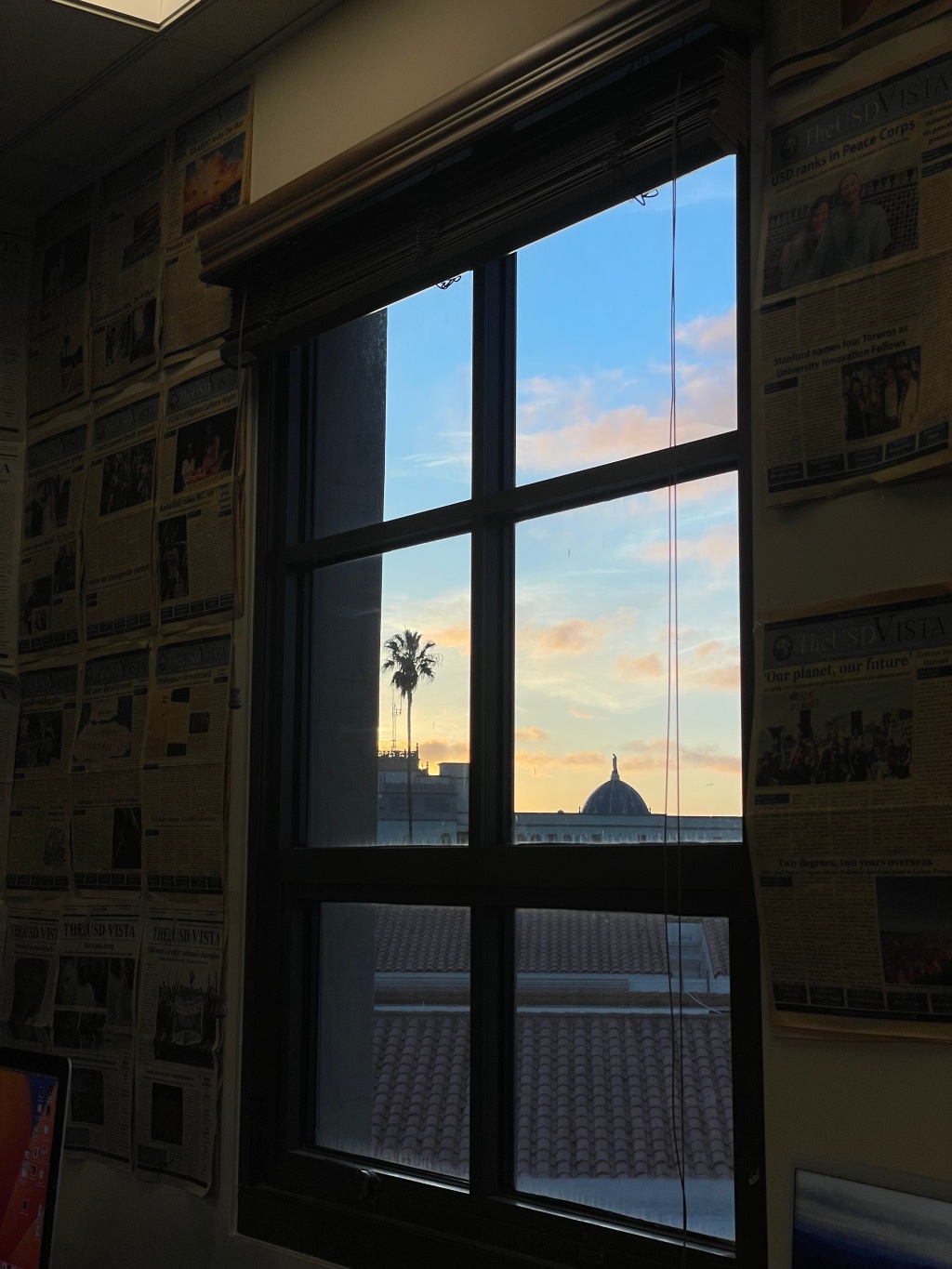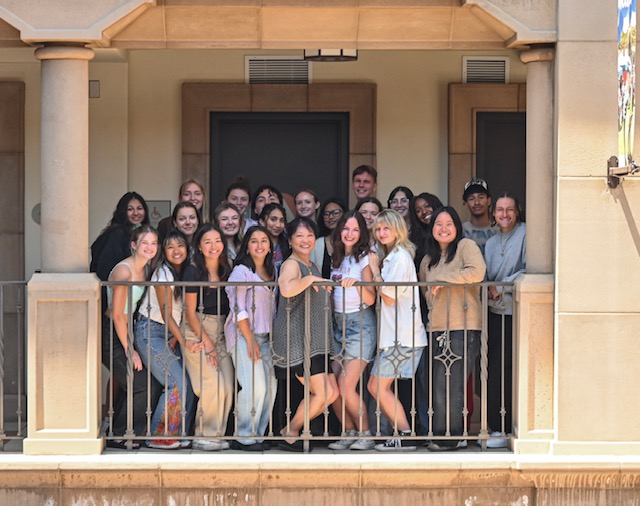RITI DEY / ASST. NEWS EDITOR
Last week, USD celebrated the 20th anniversary of the Department of Ethnic Studies which focuses on “cultures of communities of color,” inviting students, faculty and alumni to reflect at an Ethnic Studies Panel on how far the department has come since its debut. The department advertised the anniversary event, stating that “USD represents one of only three Catholic universities in the nation that provide Ethnic Studies as a major, thereby providing students with a well-rounded liberal arts education.” At the panel, Dr. Gail Perez, co-founder of the Ethnic Studies major, opened the event by reflecting on the controversial nature of Ethnic Studies around the country.

Photo courtesy of @usdcas/Instagram
She noted how different state governments and universities are currently reinforcing harmful rhetoric and information about race in their curriculums, and she cited Florida’s recent curriculum changes, introduced in July, “including lessons on how ‘slaves developed skills’ for ‘personal benefit.’”
Perez also described the timeline of the creation of the Department of Ethnic Studies at USD, and how it began with only $600 in its budget.
The history of Ethnic Studies at USD is deeply rooted in protest and student activism. In 1995, concerned faculty discussed and planned the inclusion of Ethnic Studies courses at USD, which was initially introduced as “Urban Studies,” having little connection to what faculty believed was relevant information to the student body at the time. A year later, an Ethnic Studies minor was introduced, with no funding or hires provided. Consequently, students organized a group called “The Ethnic Studies Student Committee” who organized protests and demonstrations such as “The Walk for Consciousness,” “The Silent March and Open Mic,” “The Talk for Consciousness,” Human Relations workshops with Associated Students and more. Finally, in 2003, the Ethnic Studies major was established, with Alberto Pulido as the first full-time hire in the subject.
Three USD alumni shared their experiences at the panel, highlighting the struggles and trauma that came with the fight to create and maintain the department. Christopher Wilson, class of 2003, was the first ever graduate with a Bachelor’s Degree in Ethnic Studies at USD, and also the first ever Black Associated Student Government (ASG) president at USD.
Wilson reflected on his journey, building the Ethnic Studies major as he mobilized with fellow students at the time, highlighting the moments of victory and the pitfalls.
After protests in favor of establishing Ethnic Studies as a major, Wilson and other members of his class celebrated by wearing t-shirts to their USD senior pictures with the words “The Movement Lives,” in reference to their mobilization efforts.
“This university erased us from the [graduation] picture,” Wilson said at the panel. “The picture that was sold to students to commemorate their graduation, they erased all the people of color from the front row. Not our shirts, but our existence. And that led to another protest.” The students were re-added into the photo promptly after.
Stephanie Sordia, class of 2007, shared her similar experience, carrying the legacy of Ethnic Studies after Wilson’s class graduated.
“There were a lot of people who had previously graduated that had come back to help us. Back then, the United Front housed the different student organizations, and we had that history available to us,” Sordia said. “I think it was still recent enough for us to understand that the movement had to continue.”
Just as members of Wilson’s graduating class had worn t-shirts to their senior pictures saying “The Movement Lives,” members of Sordia’s graduating class wore t-shirts saying, “The Movement Lives On.”
Valerie Jaimes, class of 2021, explained how more than anything, the community she felt within the Ethnic Studies Department is what compelled her to stay at USD, despite the struggles she faced.
“I started finding myself, and I really appreciate these courses but also the community,” Jaimes explained. “It’s the people, it’s the attention, it’s the heart that really helped me stay here. It was Ethnic Studies that kept me here, my people.”
“What we knew was when we fight, we win,” Wilson said. “Our lives matter, our history and our lives are worthy, our paths were merged, we were united and we were chosen. It was traumatic, but well worth the victory.”
After closing the panel, the celebration continued in Salomon Hall at the reception. Current students reflected on the panel and why they believe Ethnic Studies is valuable at USD.
Current USD sophomore Areeya O’Neill explained her experience with the Department of Ethnic Studies.
“My freshman year I took an intro to Ethnic Studies class with Professor Mills, and I really liked it, because I found a lot of interest in the subject matter,” O’Neill said. “You’re having a lot of important conversations not only about the school but also about the country… going to this school also made me reflect on my identity a lot, and the class allowed me to learn more about that.”
USD sophomore Shervin Fotouhi shared similar sentiments about the impact that Ethnic Studies has had on him.
“I grew up in predominantly white areas, and I think it’s really beneficial for a lot of people who haven’t heard other perspectives, through no fault of their own, to learn about these topics and other opinions.”
Dr. María José Plascencia joined this year as a professor of the class “Introduction to Ethnic Studies,” following the recent departure of two previous professors in the department. Plascencia explained her views on the importance of Ethnic Studies in enhancing inclusivity on campus.
“Speaking from very personal experience, one of my favorite things to hear is when the students who are taking my intro class are talking about the things they are learning in my class in different spaces,” Plascencia said. “Taking those conversations outside of the classroom is really important and expands the kind of conversations that students are having on campus.”
Alumni from the Ethnic Studies Department, as well as current faculty and students who feel passionately about maintaining and expanding this program continue to support and celebrate its achievements and what comes next.





Leave a comment